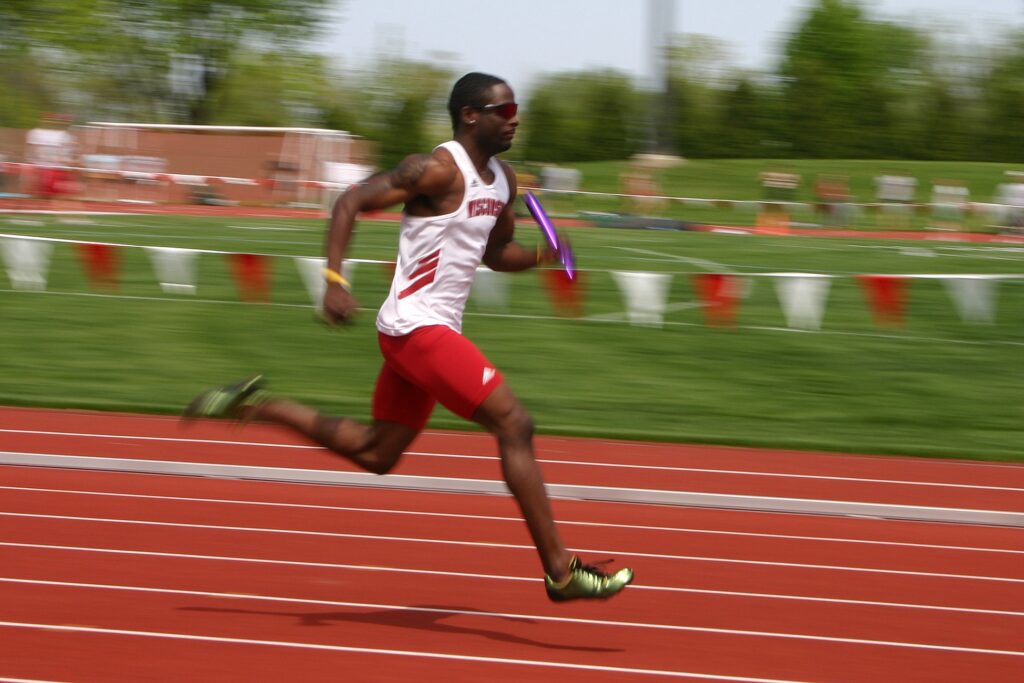Attitudes toward the use of marijuana in sports are changing rapidly. Major sports leagues in the U.S. are easing restrictions and advocates are calling for an end to cannabis testing at the Olympics.
Just before the end of the 2024 Summer Olympics last month, a survey commissioned by Boca Recovery Center revealed that a significant majority of Americans believe Olympic athletes should be allowed to use marijuana without facing penalties. This survey, conducted during the Olympics in Paris, found that 63% of respondents said athletes who use cannabis should not be disqualified. This percentage is higher than those who support the same leniency for alcohol (62%), tobacco (60%), psilocybin (27%) and LSD (20%).
Overall, 42% of respondents said athletes shouldn’t be punished for using recreational drugs during their personal time, while 26% think a disqualification should depend on the type of substance used. Only 32% of respondents believed that drug use of any kind should disqualify athletes from competition. And over 80% agreed that there should be a clear distinction between recreational and performance-enhancing drugs when determining athletic eligibility for the Olympics.
The survey reveals a seachange in attitude that has swept the nation in recent years — an attitude that has not fully caught on in other parts of the world.
The World Anti-Doping Agency (WADA) continues to uphold its cannabis ban, but the U.S. Anti-Doping Agency (USADA) has been advocating for a change in these rules.
USADA CEO Travis Tygart openly criticized the WADA ban on marijuana during an interview with Yahoo Sports amid the Paris Olympics. Tygart called it “unfair” and “disappointing,” arguing that WADA maintains this prohibition based on flawed reasoning. Tygart said marijuana does not enhance athletic performance and should not fall under the agency’s jurisdiction, which should be focused on preventing cheating in sports.
In 2021, following the suspension of U.S. runner Sha’Carri Richardson for testing positive for THC, WADA reviewed its marijuana policy at the request of USADA and the White House Office of National Drug Control Policy. WADA concluded that THC was probably not a performance enhancer, but it meets two of the agency’s three criteria for a banned substance: It could pose a health risk to athletes and it violates “the spirit of the sport.”
Tygart expressed frustration with WADA’s decision-making process, which he described as opaque and exclusionary, noting that U.S. officials were informed of the decision only after it had been made. He said it’s unjust to penalize athletes for behavior that does not violate the core principles of fair competition.
The WADA attitude toward weed differs greatly from the Americans asked about it in the Boca survey. Half of the respondents said that using cannabis is a personal choice, while 46% felt the penalties are too harsh and that personal habits should not affect Olympic participation. About a third of respondents also felt that recreational substance use does not impact a team’s overall performance.
The agency’s attitudes differ greatly from U.S. major sports leagues, as well.
The National Collegiate Athletic Association (NCAA) recently voted to remove marijuana from its banned substances list for Division I players. The association said weed does not enhance performance and should be treated the same as alcohol. It explicitly said it doesn’t condone cannabis use and that educating student athletes about the dangers of weed is more effective than banning the substance altogether.
“The NCAA Drug-Testing Program should focus on testing for substances that provide an unfair advantage by enhancing athletic performance,” wrote the Division I council.
The National Football League (NFL), despite ending suspensions for marijuana use as part of a collective bargaining agreement in 2020, continues to fine players who test positive for THC. This policy is currently being challenged in federal court by a player who was penalized for using a prescribed synthetic THC medication to treat anxiety, post traumatic stress disorder and pain.
Major League Baseball removed cannabis from its list of banned substances in 2019, although there are still penalties for players who show up to events under the influence or are arrested for the drug.
The National Basketball Association stopped testing players for marijuana in 2023 after reaching an agreement with the players union. World-class player LeBron James even famously pantomimed smoking a blunt with other players on the court during a live game last year.
The Ultimate Fighting Championship formally removed marijuana from its banned substances list at the beginning of this year, although athletes can still face penalties under state rules if they test positive for THC above certain limits (an issue that arose in California earlier this year).
Last year, Nevada’s sports regulators also took steps toward reform, proposing a regulatory amendment to protect athletes from penalties for marijuana use if the use is in compliance with state law.
An August study published in the journal Sports Medicine, funded in part by a grant from NFL’s Pain Management Committee, found people are increasingly becoming hip to the idea of athletes using marijuana. The researchers said athletes are likely to be curious about the drug’s medical benefits.
“Athletes, known for exploring diverse substances to optimize performance, are drawn to the potential benefits of cannabinoid therapy, with anecdotal reports suggesting positive effects on issues ranging from anxiety to brain injuries,” wrote the study’s authors.
The researchers reviewed a number of studies on the drug and concluded there needs to be more scientific attention on how marijuana affects athletes specifically and that there needs to be a higher level of standardization among the marijuana policies of different sports organizations.
H/T: abq.news
You can view the whole article at this link Americans Call For an End to Weed Testing in Sports



